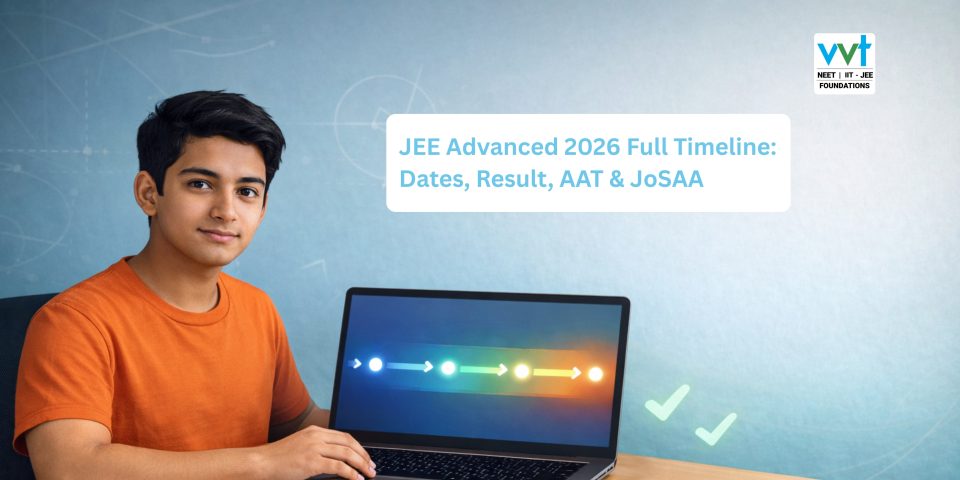
BDS Syllabus 2025: Complete Year Wise Topics for Dental Students
August 3, 2025
Understanding State Quota in NEET 2025
August 5, 2025NRI Quota in NEET 2025: Eligibility, Documents, Fees & How to Apply (VVT Coaching Guide)
VVT Coaching Chennai – Ranked #1 Best NEET Coaching Centre by Times Now
If you’re an NRI/OCI/PIO student aiming for an MBBS/BDS seat in India, the NRI Quota can be your fast track lower competition, clear eligibility rules, and access to top private/deemed universities (plus limited government seats in select states).
This guide explains everything in plain language and shows how VVT Coaching can support you from NEET prep to counselling and verification.
Quick Facts (2025)
- Who can apply: NRI/OCI/PIO candidates; in many states, an NRI sponsor closely related to the candidate is accepted.
- Academics: 10+2 with Physics, Chemistry, Biology & English; typical minimum 50% for General (lower thresholds for certain categories per state norms).
- NEET: Qualifying NEET UG is mandatory.
- Age: 17 years on or before December 31, 2025; no upper age limit at present.
- Fees: NRI seats in private/deemed universities are significantly higher than domestic seats. Government NRI seats exist only in a few states and are comparatively lower.
- Where to apply: Through MCC (for AIQ/deemed) or your state counselling authority (for state-level seats).
What is the NRI Quota?
The NRI Quota reserves a portion of seats—primarily in private/deemed universities and in a limited number of government colleges in some states—for NRI/OCI/PIO candidates. While seat availability varies by state and institution, the process always requires:
- NEET UG qualification, proof of NRI/OCI/PIO status (or valid NRI sponsorship), and document verification with the relevant counselling authority.
Eligibility Criteria (At a Glance)
| Criterion | Requirement |
| NEET | Must qualify NEET UG 2025. |
| Academics (10+2) | PCB + English; typical minimum 50% for General (state-specific relaxations may apply for reserved categories). |
| Status | NRI/OCI/PIO candidate; or NRI-sponsored candidate with valid relationship proof as per state rules. |
| Age | Minimum 17 years by Dec 31, 2025; no upper age limit at present. |
| State Rules | Some states impose extra documents or format rules (see Karnataka example below). |
Tip from VVT Coaching: Keep your category, domicile, and NRI/sponsorship status consistent across all applications and documents. Inconsistencies commonly trigger verification issues.
Documents Checklist
Use this as a master checklist; your state may require additional items or specific formats.
- NEET UG: Admit card & scorecard
- Identity & Nationality: Passport (candidate and/or sponsor), OCI/PIO proof (if applicable)
- NRI Proof: Embassy/consulate certificate confirming NRI status (often must be recent, e.g., within 6 months)
- Sponsor Proof: Sponsor’s passport, valid visa/permit, bank passbook/statements for financial capability
- Relationship Proof: Birth certificates/family tree/specific state formats; sponsorship affidavit if asked
- Academics: Class 10 and 12 mark sheets & passing certificates
- Other: Transfer/migration certificate, recent photographs, category certificate (if applicable)
Karnataka (KEA) — Special Notes for 2025
Some of the following have been enforced in recent KEA cycles for NRI candidates:
| Document | Format/Rule |
| Family Tree | Tahsildar‑signed family-tree certificate; notarized affidavits are not accepted. |
| Embassy Certificate | Must be recent (e.g., issued within 6 months of verification). |
| Sponsor Proof | Passport, valid visa, and bank passbook/statements required. |
| Physical Verification | Scheduled in-person document verification windows; missing the window can lead to disqualification. |
Checklist tip: Bring originals plus multiple photocopies.
Use labeled folders for quick desk checks during verification.
Fees & Total Cost (What to Expect)
Why fees vary: Type of institution (deemed/private vs. government), state policy, and seat demand—all affect pricing. The figures below are indicative; always check the latest fee brochure.
| Institution Type | Typical Annual Tuition (NRI Quota) | What Else to Budget |
| Private/Deemed Universities | ~₹20–40 lakh (some programs higher) | Hostel & mess, caution deposit, uniforms, instruments, insurance, exam fees, travel |
| Government Colleges (limited states) | ~₹5–15 lakh | Similar overheads; total remains lower than private/deemed |
Smart budgeting: Plan for 5 years (4 academic + 1 internship year), annual increments, and one-time onboarding costs (instruments/hostel deposits).
How to Apply (Step‑by‑Step)
- Write & Qualify NEET UG 2025
- Decide your track(s):
- MCC counselling (Deemed Universities & AIQ categories)
- State counselling (Your chosen state(s); rules differ)
- Register online with the correct quota/category selections (ensure NRI status/sponsorship is accurately declared).
- Upload documents as instructed; pay the counselling fee.
- Document verification: attend in person if required; follow the rank/date/time slot strictly.
- Choice filling: list preferred colleges and courses (MBBS/BDS).
- Seat allotment: check results; if allotted, download allotment order.
- Reporting: visit the college with originals, complete fee payment and admission formalities.
- Upgrades/withdrawal: follow the rules for subsequent rounds if you seek a better option.
Dual registrations: Many authorities allow registering in more than one counselling (e.g., MCC + a state). Ultimately, you can hold only one seat. Read the fine print for refunds/forfeitures.
State‑Specific Pointers (High‑Yield)
- Government NRI seats exist only in a handful of states. Most NRI seats are in private/deemed institutions.
- Karnataka (KEA): Stringent document formats and strict verification windows; come prepared with the exact formats listed.
- Tamil Nadu, Maharashtra, Telangana, Kerala: NRI seats are largely in private/deemed colleges; formats and affidavits vary—check their latest brochure.
- Always read the most recent state notification before applying; rules may change across years.
Common Mistakes to Avoid
- Declaring NRI/sponsorship incorrectly or inconsistently across portals
- Expired embassy certificates (older than permitted window)
- Submitting notarized family tree where tahsildar‑signed is mandatory
- Missing in‑person verification or wrong reporting day/time
- Assuming AIQ vs NRI rules are the same across all states (they aren’t)
Final Checklist
- NEET UG: Admit card + scorecard
- Passport (candidate + sponsor) and OCI/PIO proof if applicable
- Recent embassy/consulate NRI certificate (within allowed window)
- Sponsor visa/permit + bank passbook/statements
- Relationship proof (family tree/birth certificates; state‑specific format)
- Class 10 & 12 certificates
- Photos, transfer/migration, category certificate (if any)
- Multiple photocopies in labeled folders
FAQs
Q1. Is NEET mandatory for NRI Quota?
Yes. Every NRI/OCI/PIO applicant must qualify NEET UG to be eligible for admission under the NRI quota.
Q2. Can I apply to both MCC (deemed) and a state counselling?
Generally yes—you can register for multiple counselling streams, but you can hold only one seat at a time. Read the refund and withdrawal rules carefully.
Q3. What NEET score should I target for NRI seats?
There is no fixed all‑India cutoff. Competitive profiles often aim for 450–500+, but actual cutoffs vary by state, college, and year.
Q4. Who can sponsor me as an NRI candidate?
Typically a close blood relative (e.g., parent, sibling, aunt/uncle) with valid NRI proof. You must also provide proof of relationship in the format required by the state.
Q5. Are scholarships available for NRI seats?
These are rare. Some institutions may offer merit‑based concessions—check directly with the college after allotment.
Q6. What if I miss my document verification window?
Most authorities treat it as non‑compliance and you may be disqualified for that round. Always arrive early with complete sets of documents.
Q7. Are government NRI seats available in every state?
No. Only a few states offer NRI seats in government colleges. Most NRI seats are in private/deemed universities.











